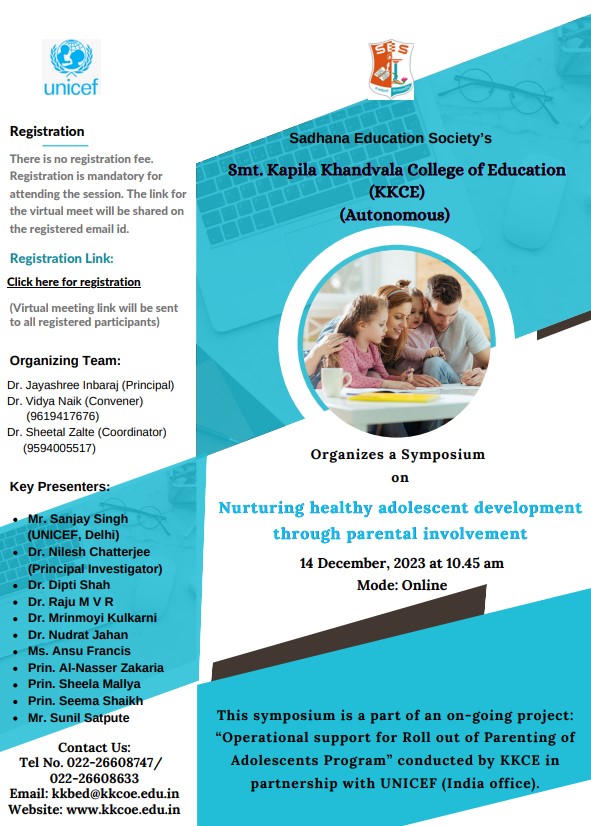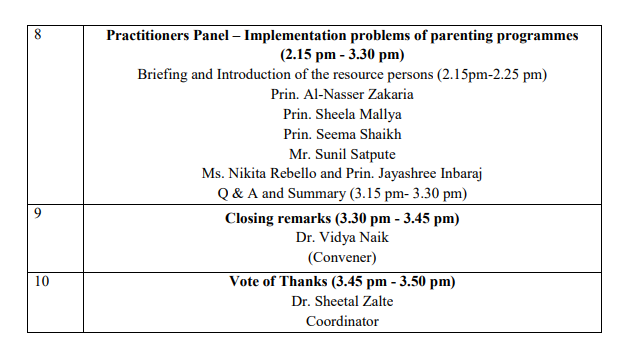NAAC accreditation – A grade (3rd Cycle)
UNICEF Project:
Parenting of Adolescents – A partnership project KKCE- UNICEF (India)
About this project:
As part of a larger effort to improve adolescent health, education and development outcomes, this project aims to understand the context and behavioral issues related to parenting of adolescents. The project will aim to understand and contextualize the last-mile of parenting at household and community levels by generating appropriate evidence, use behavioral insights and a human-centered design approach to test concepts and prototypes for the desired behavior change of parents, identify some good practices and help the government’s frontline workers with appropriate and effective practices to follow in enrolling parents for improving adolescent health, learning and other outcomes.
The project will work in three phases:
Phase 1: Discovery and Deliberation. In this phase the aim is to generate evidence on perceptions, perspectives and practices of parenting that exist in households today. In this phase, in addition to desk reviews, the project team members will conduct observations, interviews, groups meetings and groups discussions or simulation and projective exercises with parents, adolescents, other stakeholders such as teachers, principals, community leaders, frontline workers and faith leaders in order to understand current parenting, barriers and enablers of desired positive parenting behaviors. In this phase after gathering evidence there will be discussions and deliberations with stakeholders to generate insights. Furthermore, there will be evidence gathering conducted with government functionaries at different levels of the system, including last mile frontline workers to understand how different programs aimed at improving adolescent outcomes deploy or leverage parenting and parental involvement and how to help them better use parents in the change process. There will be exercises, activities, simulation, games, role plays and projective technique exercises with adolescents too. There will be a barrier analysis report that is generated.
In Phase 2, the design and prototype phase, insights generated will be used to design prototypes of interventions for behavior change related to parenting. These prototypes will be tested using appropriate research designs in a rapid manner. There will also be a capacity gap analysis of government functionaries, especially at last-mile with respect to delivery of a proposed parenting program. Appropriate frameworks and theory of change will be created.
Phase 3 is the Debrief and Dissemination phase. Appropriate reports, a policy brief, and publishable paper will be written, along with a website that hosts the project reports and work conducted.
The project is in its last phase and the research team is involved in compiling the findings, testing interventions and dissemination .
Symposium:


Competition for student-teachers:
Parental Involvement in Adolescent Development -Competition
Resource Persons:
Adolescent Development and Role of Parents Global Problem – Local Solutions
Brain and Behaviour-Understanding why adolescents behave differently
Research Panel – Parenting and Adolescents (UNICEF-KKCE)
Practitioners Panel – Implementation problems of parenting programmes
Report of the Symposium:
